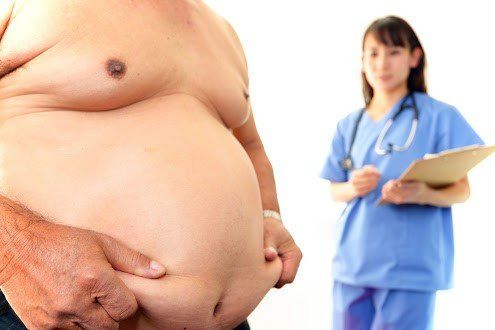Tips for Healthy Weight Loss
Admin • January 21, 2020

At the start of a new year, many people make resolutions to lose weight. Unfortunately, not all weight loss programs are good for your health, and many can cause more problems than they solve. The number on the scale is not the only number that matters.
Reaching a healthy weight is an excellent goal, however; a healthy weight reduces your risk of heart disease and diabetes. Make your goal for weight loss a reality by following these guidelines for healthy, sustained weight loss over time.
Food Choices
Many diet programs will operate by restriction. Reducing caloric intake does result in weight loss, but you still need to get enough nutrients each day to meet your needs. A good diet program will make sure you still get enough calories and provide you with the nutrition your body needs. A good weight loss diet:
- Increases fruit and vegetable intake. Leafy greens and colorful vegetables are a staple for good nutrition.
- Reduces sugar and refined carbohydrates. Sugar in most weight-loss diets comes from fruits.
- Advocates for whole grains. There is no reason to avoid grains for weight loss unless you have a medical reason not to eat grain.
- Uses lean sources for protein. Fish, chicken, and egg whites are common protein sources.
Many fad diets use words like detoxification or super foods to make such diets seem like they are good for your health. To achieve healthy weight loss, however, you do not need to go on juice fasts, eat only vegetables for a week to detox your body, or avoid fruit because it has carbohydrates.
Instead, you can track your food intake to make sure you eat enough calories while maintaining balance. This approach to eating is more sustainable over the long term. Many people hope for a quick fix for weight loss, but in reality, slower weight loss is easier to maintain and is better for your overall health.
Exercise
Exercise is the best companion to a dietary change. It helps to improve your cardiovascular health and it reduces your risk for diseases like osteoporosis. It also works together with weight loss efforts to improve your metabolism and increase your fitness level. Exercise is often one of the best predictors for people being able to lose weight and keep it off.
Even though people often choose cardio workouts, like running on the treadmill or a dance class, in order to burn calories, you should not neglect weightlifting as part of your workout routine. Lifting weights does not burn as many calories in an hour as running or biking, but it increases your muscle mass, which will improve your metabolism while you rest.
When you start exercising regularly, start slowly. If you are not used to any sort of exercise, begin with something gentle, such as walking or a water aerobics class. As your fitness level improves, you can branch out to new types of workouts.
Water
One challenge that some people face when they hope to lose weight is to drink water. You might enjoy soda, coffee with cream and sugar, juice, milk, or alcohol instead of water. All of these drink options add calories (sometimes hundreds of calories) to your daily intake.
A simple weight loss technique that some people can employ is to drink only water on a daily basis. You improve your hydration, and you cut out the calories that came from other types of drinks. Save juice, beer, wine, or soda for special occasions.
Sleep
Finally, getting enough rest is important for weight loss. When you do not sleep enough, you have increased stress hormones and increased appetite, which makes it harder to stick to your eating plan. Exercise, also, is not as beneficial when you are tired.
If you think you need medical help for your weight loss goals, contact a doctor
at Hampstead Medical Center PC. We can help provide feedback for your goals and suggest other medical options for people who might need additional weight loss assistance.

The IUD, or intrauterine device, is one of the most effective methods of birth control available. Unlike birth-control pills, you do not need to remember daily to administer medication, and the device itself lasts longer than shots and is easier to use than rings. Many women find all of these benefits desirable for a birth-control method. There are two general types of IUDs available to women. The first type is the copper IUD, and the other is hormonal. Which one is right for your personal birth-control needs?

Although the risk of cardiovascular disease increases as you get older, many people who die suddenly of a heart attack didn't previously know they had heart disease. That's why identifying risk factors for heart attack and stroke is so critical to cardiovascular health. Fortunately, with regular exams and the many types of screening tests available, doctors can detect early signs of heart disease.

Even if you've never had cause to doubt your thyroid function, if you're a female who has recently given birth, you may be at risk for thyroid issues. An estimated 12 percent of Americans deal with thyroid trouble at some point during their adult lives, and women are significantly more likely than men to develop a thyroid-related ailment. Unfortunately for new mothers, many of the most common signs of an underactive thyroid (like weight gain, mood swings, fatigue, and irritability) are also quite common for those dealing with a newborn's frequent night wakings and the realities of a post-partum body. Read on to learn more about some common (and not-so-common) signs that you could be dealing with a pregnancy-induced thyroid problem as well as some treatment options that can be safely administered or performed while you're breastfeeding. What Can Cause Thyroid Problems During Pregnancy? As with many other hormonal disorders, there are often more questions than answers when it comes to thyroid function. However, researchers have pinpointed a few factors and health conditions that can raise the risk of a woman’s developing a thyroid issue during or immediately after pregnancy. For example, while only around 7 percent of women are at a general risk of developing postpartum thyroiditis, this risk increases to 25 percent for women who have Type 1 diabetes or who dealt with elevated antithyroid antibodies during pregnancy. Women whose anti-peroxidase (anti-TPO) antibodies were elevated during pregnancy may have a 1 in 2 chance of developing postpartum thyroiditis, and those who have dealt with thyroid issues in the past (or during previous pregnancies) also deal with a significantly increased risk. In other cases, thyroid problems may have no cause that can easily be pinpointed; the rush of various hormones during pregnancy and the strain they can put on various systems, including the endocrine system, can create a sort of "perfect storm" in which thyroid problems may thrive. What Are Some Signs You're Dealing With Post-Pregnancy Thyroid Issues? Thyroid problems can take a number of forms, including hypothyroidism (an underactive thyroid), hyperthyroidism (an overactive thyroid), Graves' disease (an autoimmune condition that causes goiter), or Hashimoto's disease (an autoimmune condition in which the body's immune system attacks healthy thyroid cells, eventually stopping all thyroid function). The signs and symptoms for each thyroid disorder are unique and often at opposite sides of the spectrum. For example, hypothyroid patients often report being cold, having dry skin, sleeping more than normal, or gaining weight without trying while hyperthyroid patients sweat profusely, suffer from insomnia, and can lose a significant amount of weight in a brief period. Postpartum thyroiditis often manifests as either an underactive or overactive thyroid, which usually normalizes itself in a few months. Symptoms lasting longer than that or that appear to be getting worse may necessitate medical intervention. What Treatment Options for an Underactive Thyroid Are Best for New Mothers? Whether you suspect you have postpartum thyroiditis or have been formally diagnosed, you may be worried about how your potential treatment options could impact your ability to breastfeed and what effect (if any) they might have on your child. Fortunately, there are a number of effective options from which to choose. If your postpartum thyroiditis is deemed autoimmune in origin, there is some evidence that taking selenium supplements could help normalize your thyroid function without requiring you to take hormonal medication (which might pass into your milk supply). If your symptoms aren't severe and don't impact your daily life, you may instead opt for watchful waiting, maintaining contact with your doctor and reporting any worsening symptoms but avoiding medication or other treatment for the time being. However, if your doctor recommends supplemental thyroid hormone, this usually means some intervention is necessary to prevent permanent damage to your thyroid and the organs and systems that depend on a steady dose of hormones. Make an appointment with Hampstead Medical Center PC to get started taking care of your health.







